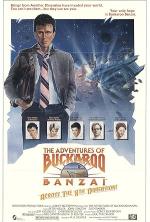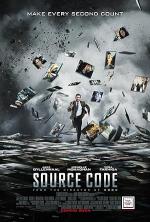"You’re about to appear at the busiest music venue in the world; your event is billed in the O2’s calendar between...

"You’re about to appear at the busiest music venue in the world; your event is billed in the O2’s calendar between Justin Timberlake and Iron Maiden. There has never been a neuroscientist, a clinical psychologist, and an associate editor filling an arena of this kind. Is this a special moment for you personally? Is there something culturally significant taking place for this to happen?
It’s interesting. I have never been to the O2, so I don’t actually know what I’m walking into, but I will resist doing an Iron Maiden impersonation.
But yes, it’s something that several of us have been experiencing. I have been experiencing it on my own, just touring the US (as has Jordan) doing venues that are explicitly rock star venues, or where very big comedians do their shows. It is interesting. There is clearly a new format for public conversation that has been found, and we have all just kind of stumbled into it. There was really no model for it that I was aware of a couple years ago. We just started doing it, testing the waters. But there seems to be the appetite for it.
What has been driving that astronomical surge in demand for speakers such as yourself, Peterson, and Murray?
I think live events are unique in that they are in the real world and they are instances of real scarcity. In the case where you’re either in the room or you’re not, and there is no video alternative, it is an occasion of real scarcity unlike anything that seems to exist now. Everything else that exists is basically being digitised and you can get it whenever and wherever you want it, usually for free. And in some ways that’s even happening to books. Insofar as it’s becoming harder and a rarer thing to even read books, people are opting to just listen to someone’s TED talk, or listen to their interviews on YouTube, or listen to a podcast, and there are very few things where it’s just the tangible moment is only available at a specific place and at a specific time. And I think there is a kind of hunger for that because everything else we’re consuming, we’re consuming in a kind of isolation and we’re all just getting siloed with our smartphones and I think there’s a hunger for people to come together and all hear the same thing in the same place at the same time. There’s nothing but a live event to achieve that."

Log ind eller registrer dig for at lægge langtidsholdbare, konstruktive kommentarer.
Registrerede brugere får bedre editor og flere likes.











Kommentarer
"To be intellectually honest requires that you apply the same standards to your own thinking that you would apply to others’. You’re holding yourself to the same standards of reasoning and consistency and evidence-based thinking that you hold others to. You’re not pointing out fallacies in other people’s arguments that you don’t notice or are unwilling to see in your own. So it’s a consistency across the board in how you judge the merits of arguments. It’s the only way of thinking about the world that scales and becomes universalisable, and it’s the only way of thinking about the world that’s not dependent on you being you and me being me. It’s one of those things where if I gave you a series of claims and their justifications, a page of claims about the environment, say, or the dangers of technological innovation, and I gave you those arguments and you read them, and you found them valid, but then you turn the page and you see that this is a long quotation from the Unabomber, right? You can’t suddenly say that they are invalid because the Unabomber said them. This is an experiment that many people have done. There are at least two books I’ve seen where you see a long quote that makes a lot of sense and then you turn the page and you see it’s attributed to Ted Kazinsky, the Unabomber, and then all of a sudden you’re brought up short and the effect that’s achieved is that the reader is left thinking “Jesus, I was just agreeing with the Unabomber! What does that say about me?” But what it can’t say is that the arguments are illegitimate because the Unabomber said them. And that’s the move that’s so often at the back of what we’re calling intellectual dishonesty.
It’s that you are attacking the person rather than the evidentiary or logical claims being made as though that were a surrogate for having a better argument against your opponent. Just calling someone a racist is not an argument, right? It’s not even proof that they’re a racist, and it’s certainly not an argument against whatever they’re claiming about the dangers of immigration or having an open borders policy, right, in Europe, say, or whatever the case may be. "
"There are people who have audiences, and Trump is one of them, where there is no stigma associated with lying. In fact, lying is just a technique. You can slant the truth, you can disavow the truth, you can contradict yourself, and nobody’s keeping score in that way on your tea, as long as you’re making the right emotional claims, or claims that trigger the right feelings in your audience. Whatever the context, you’re winning their support. That’s a total breakdown of rational conversation, and it’s happening on the right and the left simultaneously."
Tilføj kommentar